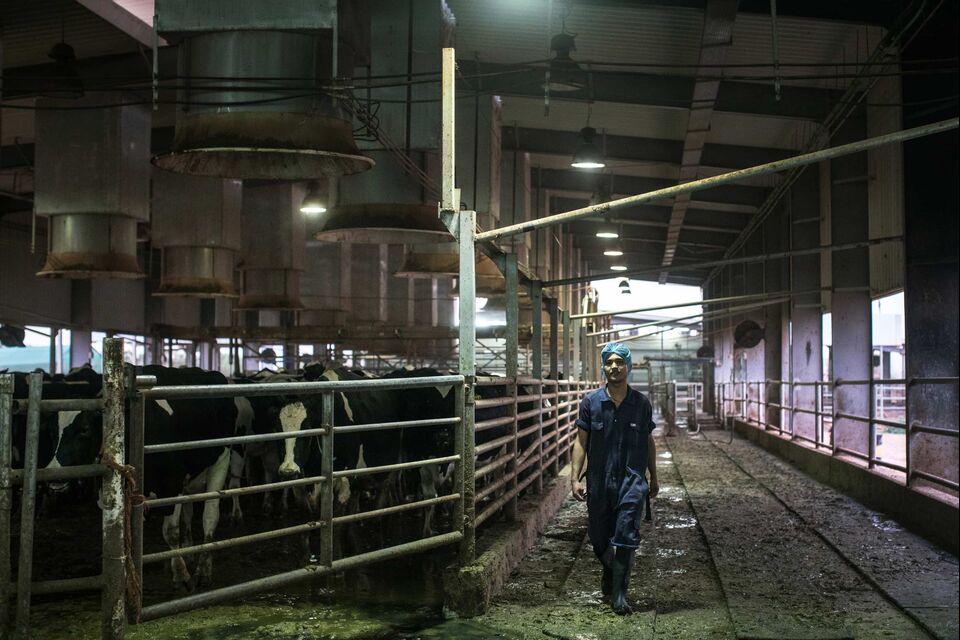 |
| Ailafoun Dairy Farm, owned by Sudan’s Dal Group and the country’s largest such facility, has in the past brought in foreign cows to increase production. |
Arab policymakers have been touting Sudan’s ability to feed the populous and water-scarce Middle East since the 1970s.
The country features as much as 200 million acres of arable land, a strategic location less than a day’s sail across the Red Sea to the Saudi port of Jeddah, and a roughly 25 percent share of the Nile’s waters under regional agreements, much of it unused.
In the Middle East and North Africa, by contrast, World Bank and United Nations statistics show that the number of chronically undernourished people has doubled, to 33 million, since 1990, and that water availability has tumbled on average to a sixth of the global mean.
 |
| Abdellatif, chairman of Dal Group, beside a statue of Taharqa, a Nubian king, in the lobby of his office in Khartoum. |
The benefits for both parties would seem obvious. And yet little of the 5 million acres the agriculture ministry estimates are in foreign hands—perhaps less than 1 in 20 acres—has been cultivated. “Nothing’s happened! Really almost nothing’s happened,” says Osama Daoud Abdellatif, chairman of the Dal Group, the country’s largest conglomerate. “Someone got this land, and someone got that land. But few have done much.”
“There is no stability in agricultural policy. Experts come and go. Not even the minister knows what budget he’s getting,” Abdellatif Ujeimi, the third of at least six agriculture ministers since 2014. (His tenure lasted about a year, until May 2018.)


No comments:
Post a Comment